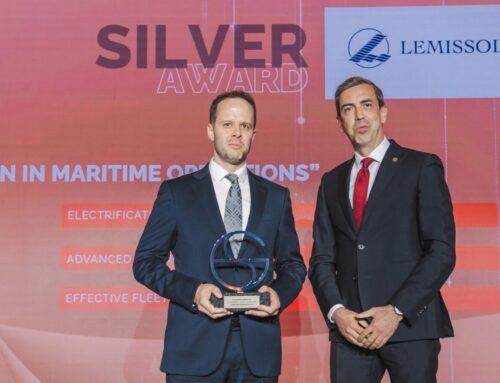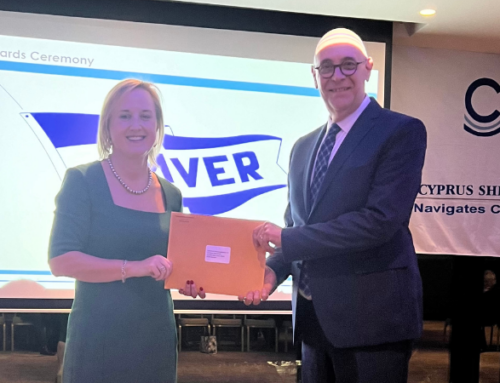Shipowners welcome the support but argue the strategic role of shipping to Europe’s security is not fully recognized in the Green Deal Industrial Plan
European shipowners looking for political recognition of the maritime sector’s strategic economic status have been backed by the European Commission Vice-President Margaritis Schinas in a speech that offered robust support to the industry
EUROPEAN Commission Vice-President Margaritis Schinas has offered European shipping leaders an unequivocal message of support, insisting that the maritime sector is a strategic industry for Europe and a vital component of EU security, economic competitiveness and social cohesion policy.
Addressing senior industry leaders gathered in Brussels for an EU shipping summit on Tuesday evening, commissioner Schinas said that the commission took seriously the threats to the sector’s competitiveness and pledged continuing support for the industry’s costly decarbonization transition.
While the speech, which acknowledged the “vital role that shipping plays in underpinning [Europe’s] economic security” was welcomed by the industry leaders and politicians gathered for the private dinner, his intervention comes amid growing industry concern that shipping is not receiving sufficient support or recognition within the EU.
In a speech delivered today, the European Community Shipowners’ Associations President Philippos Philis told the European Shipping Summit that “the strategic role of shipping to Europe’s security is not fully recognized in the Green Deal Industrial Plan”.
“Let me put this openly on the table: to maintain its global leadership, Europe needs European shipping,” said Philis.
The high-level interventions come as European politics shifts into campaigning mode for the next eight months in the run-up to the European elections, with both politicians and industry leaders vying for support and pledges.
“The shipping sector has a central and strategic role in ensuring Europe’s security and prosperity connecting our continent with the rest of the world and promoting a rules-based global order that has European values and principles in its core,” said commissioner Schinas in a speech that hailed Europe’s leadership in advancing shipping’s decarbonisation timeline.
Welcoming the International Maritime Organization’s 2050 greenhouse gas emissions targets agreed in July, Schinas said that Europe was relying on shipowners to invest in a green future.
“The rules of this game have now been set and this will provide for all of you certainty and reliability, so that the sector can have a clear direction of travel, which in turn will be vital for unleashing private sector innovation and investment,” he explained during the private dinner attended by industry leaders and politicians from across Europe.
Investment, he argued, was the role of industry and European shipping should be a front-runner.
“We cannot and shall not leave the development of new maritime technologies to laboratories or research institutes. We need stakeholders and shipping operators to make choices and help us deliver together”, he said adding “never before has so much funding being available to support this [transition]”.
Speeches expected to be delivered today at the EU shipping summit, however, will stress the need for further EU support for the sector and argue against protectionist approaches from government.
According to ECSA, supply chain security for Europe is dependent on open access to international markets. Europe’s prosperity relies on a traditionally solid trade surplus. Goods, commodities and food trade made Europe more prosperous and created millions of jobs, the shipowner representative body argued.
“Supporting the competitiveness of European industry must therefore not lead to unwarranted protectionist measures and must not undermine open trade. We must keep investing in our global partnerships,” Philis argued in his keynote address.
“Shipping enables 76% of Europe’s external trade. A protectionist approach will disrupt trade patterns and risk weakening Europe’s supply chains at a time where traditional import and export markets are facing increased uncertainty.”
Source: Lloyds List






